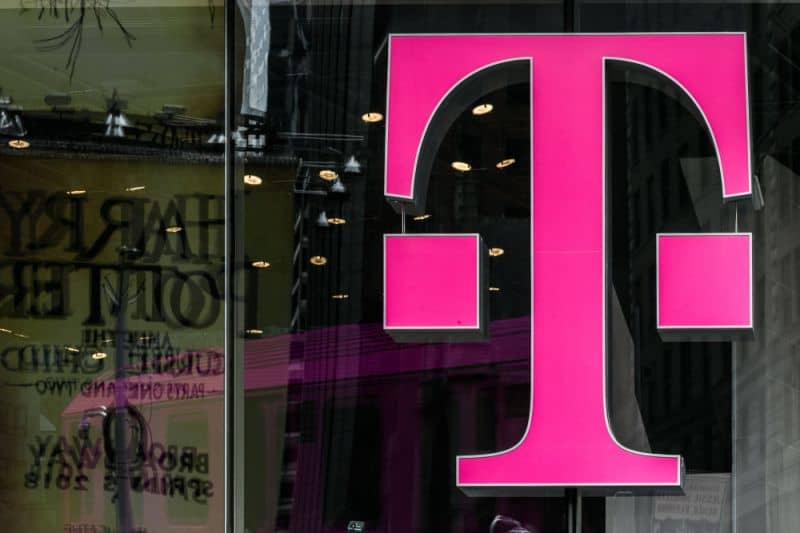
T-Mobile US Inc. and Sprint Corp. agreed to new terms for their pending merger that take account of the slide in Sprint shares since the transaction was first agreed, putting the industry-altering deal a step closer to completion.
T-Mobile owners will get roughly 11 shares of Sprint for each of their stock, the companies said Thursday. That’s an increase from a ratio of 9.75 previously and is more favorable for T-Mobile’s German owner Deutsche Telekom AG.
The equity value of the amended deal is about $37 billion compared with the original agreement of $26.5 billion, according to Bloomberg Intelligence analyst Erhan Gurses. The higher valuation partly reflects the 62% gain in T-Mobile shares since the all-stock transaction was announced almost two years ago, despite the deterioration in Sprint’s business.
Getting one of the biggest U.S. wireless mergers ever over the finish line would be a boon for Deutsche Telekom as it will reduce its reliance on Europe, where carriers are struggling to grow amid fierce competition. T-Mobile makes up more than half of Deutsche Telekom’s sales, up from about a third in 2014. A completed deal will also benefit Sprint owner SoftBank Group Corp. by allowing its chairman, Masayoshi Son, to better focus on his technology investments and the $100 billion Vision Fund.
The combined company, which will operate under the T-Mobile name, will have a regular monthly subscriber base of about 80 million — in the same league as AT&T Inc., which has 75 million subscribers, and Verizon Communications Inc., which has 114 million.
When the transaction closes, which could happen as soon as April 1, Deutsche Telekom is expected to keep 43% of the merged entity, while SoftBank has 24%. The rest will be held by public shareholders.
Deutsche Telekom shares fell 1.3% to trade at 16.41 euros in Frankfurt. Sprint shares were up 5% to $9.96 at 11:01 a.m. in New York, while T-Mobile was down 1.8% to $97.73.
The original accord, which united the third- and fourth-largest U.S. wireless carriers, was forged in April 2018. That pact lapsed on Nov. 1, and the companies didn’t initially renew the terms while they fought for government approval. When a federal judge rejected a state lawsuit to block the transaction earlier this month, that put the talks on the front burner.
Along the way, Sprint’s condition has worsened. That added pressure to redraw the agreement so that it was more favorable to Deutsche Telekom.
SoftBank agreed to surrender 48.8 million T-Mobile shares that it will acquire in the merger to the combined company immediately after the transaction closes. But those shares could be reissued to SoftBank by 2025 if the new company’s stock stays above $150 for a period of time.
That arrangement — having SoftBank relinquish the stock after the deal closes — was structured so that the deal wouldn’t have to go before another shareholder vote.
Sprint investors other than SoftBank will still get the original ratio of 0.10256 T-Mobile shares for each Sprint share — the equivalent of about 9.75 Sprint shares for each T-Mobile share.
Sprint’s monthly churn — a closely watched measure of how many customers leave — has risen to nearly 2%. That means roughly a quarter of its subscriber base is quitting the carrier each year. And the company isn’t making up for the decline by charging more: Average revenue per customer has fallen 5% since the deal was announced.
Analysts such as LightShed Partners’ Walt Piecyk said the merger’s exchange ratio should be closer to 12, given Sprint’s deteriorated business.